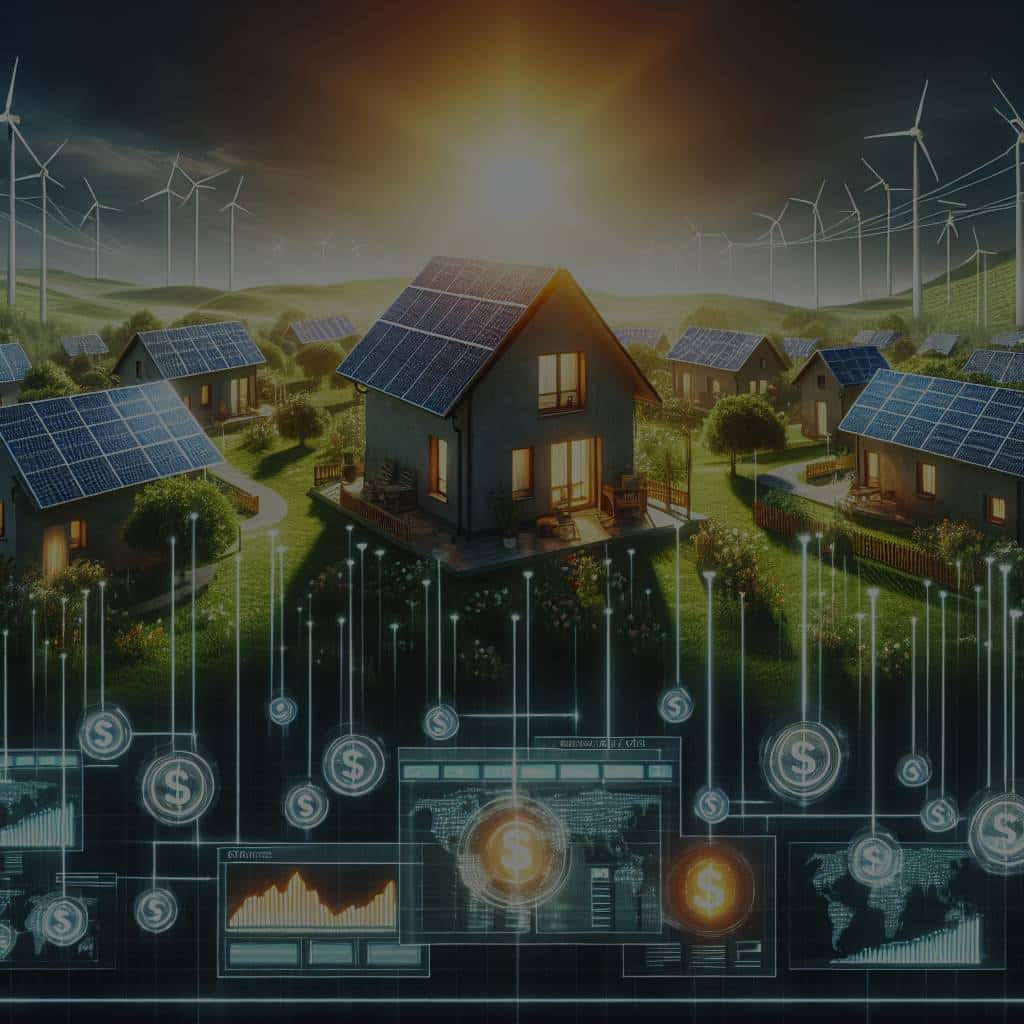How Can Peer-to-Peer Energy Trading Transform the Renewable Energy Market?

Imagine a world where you could generate your own renewable energy and sell the surplus directly to your neighbors. This is not a utopian dream, but a real possibility thanks to peer-to-peer energy trading. This model introduces a decentralized approach to electricity distribution and consumption, embracing technology and empowering consumers. But how exactly can this transform the renewable energy market? Let’s dive in.
Peer-to-Peer Energy Trading: A Market Shift
In traditional electricity systems, energy providers produce power and distribute it to consumers through a centralized grid. There’s limited interaction between consumers and the grid beyond paying for their energy consumption. However, the advent of renewable energy technologies and blockchain systems has paved the way for a more interactive, decentralized energy market: peer-to-peer (P2P) energy trading.
Also to see : What’s the Latest in Text-to-Speech Technology for Assisting Dyslexic Readers?
This innovative model allows individual energy consumers, often homeowners with solar panels or wind turbines, to become producers themselves who can trade excess power with other participants in the network. This not only gives consumers a say in their energy consumption but can also lower their energy costs and reduce greenhouse gas emissions.
The Role of Blockchain Technology in Energy Trading
The blockchain, a decentralized and secure ledger system, plays a key part in the P2P energy trading revolution. It ensures that all transactions are transparent, tamper-proof, and automated. This, in turn, builds trust among network participants and eliminates the need for intermediaries, thereby reducing transaction costs.
In parallel : Discover the excitement of revealed pokémon mystery boxes!
The blockchain also allows for the creation of smart contracts, automated agreements that execute when specific conditions are met. For instance, when a homeowner has excess power, a smart contract could automatically sell it to a neighbor and record the transaction on the blockchain. This seamless process makes P2P energy trading more efficient and accessible to consumers.
Decentralizing the Power Grid
The traditional power grid involves a lengthy journey from energy producers to consumers, with multiple steps in between that can lead to energy loss and inefficiencies. In contrast, P2P energy trading encourages the development of microgrids, localized energy networks that connect nearby producers and consumers.
Microgrids not only reduce transmission losses and improve energy efficiency, but they also increase grid resilience. In the event of a power outage, a microgrid can operate independently, ensuring its users still have access to electricity. As more consumers switch to renewable energy sources and participate in P2P energy trading, we can expect a shift towards a more decentralized power grid.
Redefining Energy Consumption and Cost
P2P energy trading empowers consumers by giving them control over their energy consumption and pricing. No longer restricted to buying power from a single provider, consumers can now choose from a multitude of sources and determine the price they’re willing to pay based on market demand and supply.
Additionally, P2P energy trading provides an incentive for more consumers to start generating their own renewable energy. The prospect of being able to sell excess power and offset installation costs may encourage more homeowners to invest in solar panels or wind turbines.
The Future of the Renewable Energy Market
Through P2P energy trading, we’re witnessing a shift from a centralized, one-way system to a decentralized network of active energy participants. This transformation not only changes the way we consume and pay for electricity but also challenges current market structures and regulations.
As P2P energy trading gains momentum, we can expect to see a more dynamic, responsive, and efficient renewable energy market, driven by consumer participation and innovative technologies. Furthermore, the increased uptake of renewable energy sources will play a crucial role in combating climate change, contributing to a more sustainable future for all.
In conclusion, while there are still hurdles to overcome, the potential impact of P2P energy trading on the renewable energy market is undeniable. Its ability to empower consumers, enhance grid efficiency, and promote renewable energy adoption marks a significant step forward in our quest for a cleaner, greener world.
The Potential of Peer-to-Peer Trading Platforms and Real-Time Energy Markets
The emergence of peer-to-peer energy trading platforms is a game-changer in the renewable energy market. These platforms enable individual consumers to become active participants in the energy landscape, thus changing the dynamics of the energy sector substantially.
Equipped with the power of blockchain technology, these platforms offer a transparent and secure environment for energy trading. They offer a marketplace where sellers and buyers can connect directly, bypassing traditional energy providers and intermediaries. This not only democratizes the energy market but also opens up new opportunities for developing a more sustainable and efficient energy system.
What makes these platforms particularly revolutionary is their ability to support real-time energy markets. In a traditional energy system, prices are determined long before the energy is actually consumed. However, with real-time markets, prices can be adjusted in response to the immediate supply and demand of energy. This ensures that prices always reflect the current state of the market, encouraging efficient energy use and reducing waste.
Furthermore, these platforms can integrate with energy storage systems, such as batteries, to store excess energy for later use or sale. This flexibility in managing energy resources adds another layer of efficiency to the P2P energy trading model.
Incorporating renewable energy sources into these platforms also promotes the transition to a greener energy sector. As more consumers generate their own energy through solar panels or wind turbines, the demand for fossil fuels decreases, contributing to the fight against climate change.
Scholarly Support for Peer-to-Peer Energy Trading and its Impact
Extensive research on this topic, available on platforms such as Google Scholar and Scholar Crossref, provides evidence of the significant potential of P2P energy trading. Many studies highlight the benefits it brings not only to individual consumers but also to the overall energy system.
For instance, research indicates that P2P energy trading can enhance the efficiency of the energy system by reducing transmission losses and optimizing energy use. It also shows that this model can encourage the adoption of renewable energy sources and reduce greenhouse gas emissions.
Moreover, scholars emphasize the role of P2P energy trading in empowering consumers. By giving individuals control over their energy consumption and providing a marketplace for selling their excess energy, this model shifts the balance of power in the energy market.
While these studies also point out challenges such as regulatory hurdles and the need for technological advancements, they generally agree on the transformative potential of P2P energy trading in the renewable energy market.
Conclusion: A Promising Future for Peer-to-Peer Energy Trading
In conclusion, peer-to-peer energy trading represents a significant shift in the renewable energy market. Supported by blockchain technology, it introduces a decentralized and democratized energy system that empowers individuals and promotes efficiency.
Through P2P trading platforms and real-time energy markets, consumers can actively participate in energy trading, benefiting from the flexibility and control offered by this model. The integration of renewable energy sources and energy storage systems further enhances the sustainability and efficiency of this system.
While challenges remain, the growing scholarly support for P2P energy trading underscores its potential to transform the energy sector. As more consumers embrace this model and as technology and regulations evolve to support it, we can look forward to a more sustainable and efficient energy future. This will not only benefit individuals and the energy sector but also contribute to our global fight against climate change.
